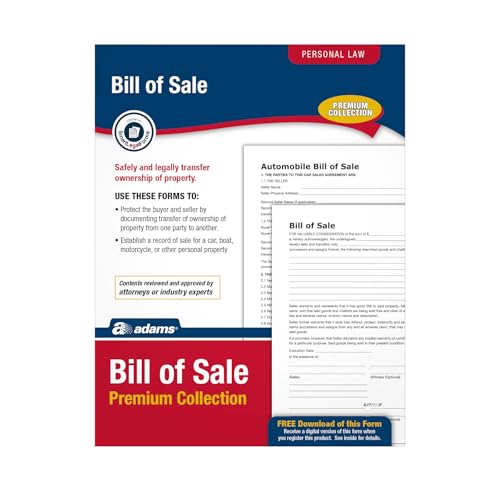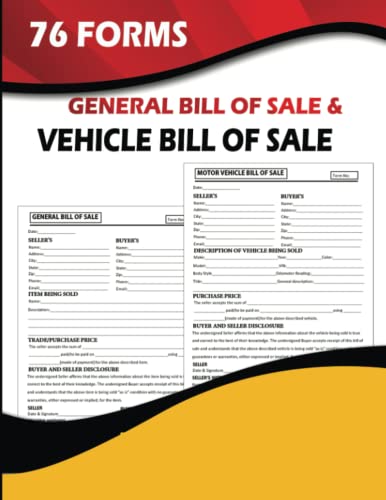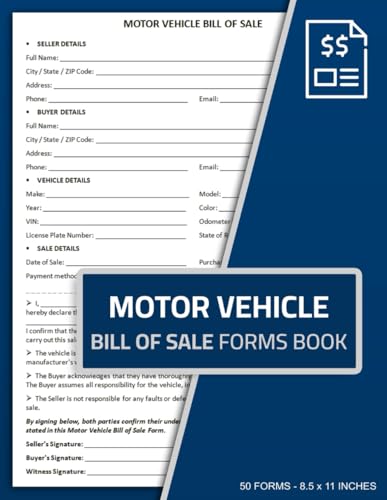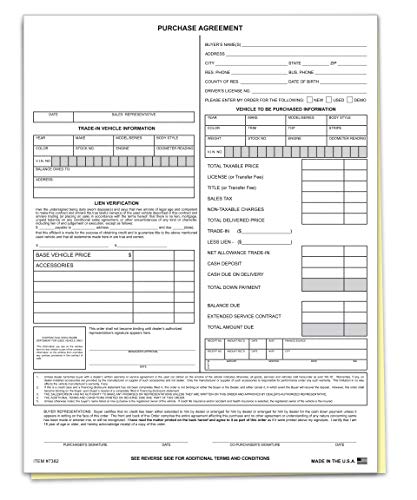Ever found the perfect car, but the seller couldn’t produce a title? This common problem can stop a sale in its tracks, leaving both buyers and sellers frustrated and unsure of how to establish legal ownership. When the paper trail goes cold, you need a proven, official method to secure your claim to the vehicle.
A bonded car title is a special document issued by the DMV, backed by a surety bond, that establishes your legal ownership when the original title is missing, damaged, or has major errors. It acts as a temporary, legal proof of ownership, allowing you to register, insure, and sell the vehicle.
Leveraging extensive analysis of state regulations and vehicle documentation processes, this guide unpacks the entire bonded title procedure from start to finish. We will cover exactly when you need one, how the underlying surety bond works, the step-by-step application process, and the critical risks you must consider. This guide unpacks proven approaches and critical insights to help you effectively navigate what is a bonded car title and secure your vehicle’s ownership with confidence.
Key Facts
- Temporary by Design: A bonded title is not permanent and typically lasts for a period of 3 to 5 years, during which ownership can be challenged before it can be converted to a clear title.
- Bond Value vs. Cost: The required surety bond is valued at 1.5 to 2 times the vehicle’s determined worth, providing substantial financial protection for previous owners.
- Affordable Protection: The actual cost to the vehicle owner for this bond is a small fraction of its total value, often starting around $100 for bonds that provide up to $6,000 in coverage.
- A Three-Party Agreement: The process legally involves three parties: you (the Principal), your state’s DMV (the Obligee), and the company issuing the bond (the Surety).
- Not a Universal Solution: Not all states offer this option; some, like Delaware and Kansas, do not issue bonded titles, requiring alternative methods to establish ownership.
What Is a Bonded Car Title? A Definitive Explanation
A bonded car title is a document issued by the DMV, backed by a surety bond, that establishes vehicle ownership when the original title is missing or damaged. It acts as a temporary, legal proof of ownership, allowing you to register, insure, and sell the vehicle. Also known as a Certificate of Title Surety Bond, this document serves as an official pathway to prove you own a car when the standard paperwork is unobtainable.
Ever found the perfect car, but the seller couldn’t produce a title? A bonded title might be the solution you’re looking for. It’s an official document issued by your state’s DMV, which provides the authority and trust needed to move forward. The core purpose of this process is to create a new, legally recognized title where one doesn’t currently exist, bridging the gap in the vehicle’s history.
A bonded car title’s primary function is to act as a temporary proof of ownership that protects the state and any potential previous owners against fraudulent ownership claims. It allows you to legally use the car while a window of time remains open for any prior claimants to come forward.
When Do You Actually Need a Bonded Title? (And When You Don’t)
You need a bonded title if you bought a car without a title, the original is lost and wasn’t in your name, it has major errors, or was inherited without proper paperwork. If you simply lost a title that was already in your name, you likely only need a duplicate title. Understanding this distinction is the crucial first step in the process. This section acts as a helpful diagnostic tool to guide you toward the correct solution for your specific situation.
You might need a bonded title if:
* You purchased a vehicle from a seller who did not provide a title.
* You lost a title that was not yet officially in your name.
* The title you received is severely damaged, illegible, or has significant errors you cannot correct.
* You inherited or were gifted a vehicle without ever receiving the title.
* The vehicle’s title was lost by a previous owner or during a transfer.
* You cannot contact the previous owner to get the necessary documentation signed.
* You bought an antique, custom, or kit car that has never been titled before.
Pro Tip: Before starting the bonded title process, double-check if you just need a duplicate. If the title was already in your name and you lost it, a simple application at your DMV could save you time and money! This is the most common point of confusion, and clarifying it early can prevent unnecessary effort.
How a Surety Bond Makes a Bonded Title Work
A surety bond is a three-party contract between you (the principal), the DMV (the obligee), and a bond company (the surety). It provides financial protection by guaranteeing that if a previous rightful owner appears, the surety will pay their claim, and you will then reimburse the surety. This bond is the core mechanism that makes the entire process possible, acting as a financial safety net for the vehicle’s title history.
Think of the surety bond as an insurance policy for the vehicle’s title history. It protects the DMV and any potential past owners from ownership disputes that might arise after you are granted the title. If someone comes forward with a valid claim, the bond ensures they can be financially compensated for their loss up to the total bond amount. This protection is what gives the DMV the confidence to issue you a new title despite the missing documentation.
The three parties involved in this contract are:
* The Principal: This is you, the current vehicle owner applying for the bonded title. You are responsible for purchasing the bond and for reimbursing the surety company if a claim is paid out.
* The Obligee: This is your state’s Department of Motor Vehicles (DMV). The bond protects the DMV from liability if they issue a title to the wrong person.
* The Surety: This is the insurance or bond company that issues the surety bond. They investigate any claims made against the bond and pay valid claims up to the bond’s value.
The Step-by-Step Process to Get a Bonded Title for Your Car
To get a bonded title, first contact your DMV to verify eligibility. Then, have the vehicle’s value determined to calculate the required bond amount (typically 1.5-2x the value). Purchase the corresponding surety bond and finally submit all paperwork and fees to the DMV. The process varies by state, but generally involves these key steps to ensure all legal requirements are met.
- Contact Your Local DMV: The very first step is to confirm that your state issues bonded titles and that your specific situation qualifies. Be prepared to explain why you don’t have the original title. It’s also important to know that some states, like Delaware and Kansas, do not issue bonded titles at all.
- Complete All Required Forms: Your DMV will provide an application for a bonded title and any other necessary paperwork. This may include a bill of sale or a statement explaining how you acquired the vehicle.
- Determine the Vehicle’s Value: The DMV will require an official valuation of your vehicle to set the bond amount. This value is typically determined using sources like Kelley Blue Book or NADA Guides. The required bond amount will be set at 1.5 to 2 times this appraised value.
- Purchase a Surety Bond: Once you know the required bond amount, you must purchase a surety bond from a company licensed to operate in your state. Quick Fact: The cost of the surety bond itself is just a small fraction of the bond’s total coverage amount, often starting around $100 for bonds up to $6,000.
- Undergo a Vehicle Inspection: Many states mandate a physical inspection of the vehicle. An official will verify the Vehicle Identification Number (VIN) to check for theft records and confirm the vehicle’s identity.
- Submit Your Application: Gather all your documents—the completed application, the original surety bond, your bill of sale, the vehicle inspection report, and any other required paperwork—and submit them to the DMV.
- Pay All Fees and Taxes: Finally, you will need to pay the standard title application fees and any applicable sales tax on the vehicle to complete the process.

Understanding the Risks and Considerations of a Bonded Title
The main risks of a bonded title include potential ownership disputes where you could lose the vehicle, difficulty selling the car due to its provisional status, and potentially higher insurance premiums. The title remains “bonded” for 3-5 years, during which these risks are active. It is crucial to weigh these potential drawbacks against the benefit of gaining legal ownership. This balanced, expert look at the potential drawbacks builds trust by not overselling the solution.
If you’re considering buying a car with a bonded title, ask yourself: is the discounted price worth the potential risk during the 3-5 year bonding period? Here is a clear breakdown of what you need to consider:
| Risk Area | What It Means for You |
|---|---|
| Ownership Disputes | If a previous rightful owner with a valid claim appears during the bond period, you could lose the vehicle. The surety bond would pay their claim, and you would be legally obligated to reimburse the surety company for the full amount. |
| Resale Value | Selling a vehicle with a bonded title can be difficult. You must disclose its status, and many buyers are hesitant or will offer a significantly lower price due to the perceived risk of an ownership challenge. |
| Insurance Premiums | While most companies will insure a vehicle with a bonded title, some may view it as a higher risk. This can result in slightly higher insurance premiums compared to a vehicle with a standard, clear title. |
| Provisional Status | For 3 to 5 years, your ownership is conditional. You cannot treat it as a standard “clean” title until the bonding period has expired without any claims being made. |

What Happens After the Bond Period? From Bonded to Clear Title
A bonded title is not permanent; it typically lasts for 3 to 5 years. If no one makes a claim against the bond during this period, you can then apply to have the “bonded” brand removed and receive a standard, clear title for your vehicle. This transition from a provisional to a permanent title is the final goal of the entire process.
Once the mandatory waiting period set by your state has passed without any incident, your ownership is no longer considered provisional. You can return to the DMV with your bonded title and request a new, clear title. This new title will function exactly like any other standard title, without the “bonded” brand or the underlying surety bond. At this point, the risk of a prior ownership claim is legally extinguished, and your ownership of the vehicle is absolute and unchallengeable.
To keep track of your paperwork and ensure a smooth process, consider using vehicle bill of sale forms and other organizational documents.
FAQs About Bonded Car Titles
Should I buy a vehicle with a bonded title?
Buying a car with a bonded title can be a way to get a vehicle at a lower price, but it comes with the risk that a previous owner could make a claim during the 3-5 year bond period. While the bond provides a financial safety net, it’s important to realize that a bonded title often signals unresolved issues in the vehicle’s past. You must weigh the savings against the potential for an ownership dispute.
What does it mean when a car needs to be bonded?
When a car “needs to be bonded,” it means there is no clear, legal proof of ownership available. The bonding procedure is required to create a new, legal title when the ownership documents (title) are not available, were lost before being transferred into your name, or contain significant errors that cannot be corrected through normal means.
How much does a bonded title cost?
The cost is not for the title itself, but for the surety bond. The bond’s price is a small percentage of its total coverage amount. For example, a bond providing $6,000 of coverage might only cost you about $100. The exact cost depends on the required bond amount, which is based on the vehicle’s value. You will also have to pay standard DMV administrative fees and taxes.
Is a bonded title a clean title?
No, a bonded title is not a clean title. It will be branded as “bonded” for a period of 3-5 years, indicating its provisional status and the existence of the surety bond. It can be converted to a clean, standard title only after this period has passed without any ownership claims being filed against the bond.
Can you sell a vehicle with a bonded title?
Yes, you can legally sell a vehicle with a bonded title. However, it can be more difficult as you must disclose its bonded status to potential buyers. Many buyers may be wary of the potential for future ownership claims or may offer a lower price due to the perceived risk associated with the provisional title.
Final Summary: Your Path to Clear Vehicle Ownership
A what is a bonded car title query ultimately leads to a powerful legal tool for establishing ownership when traditional documentation is lost. It is a structured, secure process that protects you, the DMV, and any potential prior owners through the use of a surety bond. While it involves several steps and carries temporary risks, it provides a legitimate pathway to legally register, insure, and eventually hold a clear title to your vehicle.
By understanding the process, you can confidently navigate the requirements and secure your ownership.
* It’s a Solution: A bonded title is the official remedy for a missing or defective title, allowing you to establish legal ownership.
* Protection is Key: The surety bond acts as a financial guarantee, protecting all parties from fraudulent claims for a 3-to-5-year period.
* It’s a Temporary Status: After the bond period expires without claims, you can obtain a standard, clear title, making your ownership permanent.
Now that you understand the process, you can confidently decide if a bonded title is the right step to secure legal ownership of your vehicle.
Last update on 2025-08-22 / Affiliate links / Images from Amazon Product Advertising API










